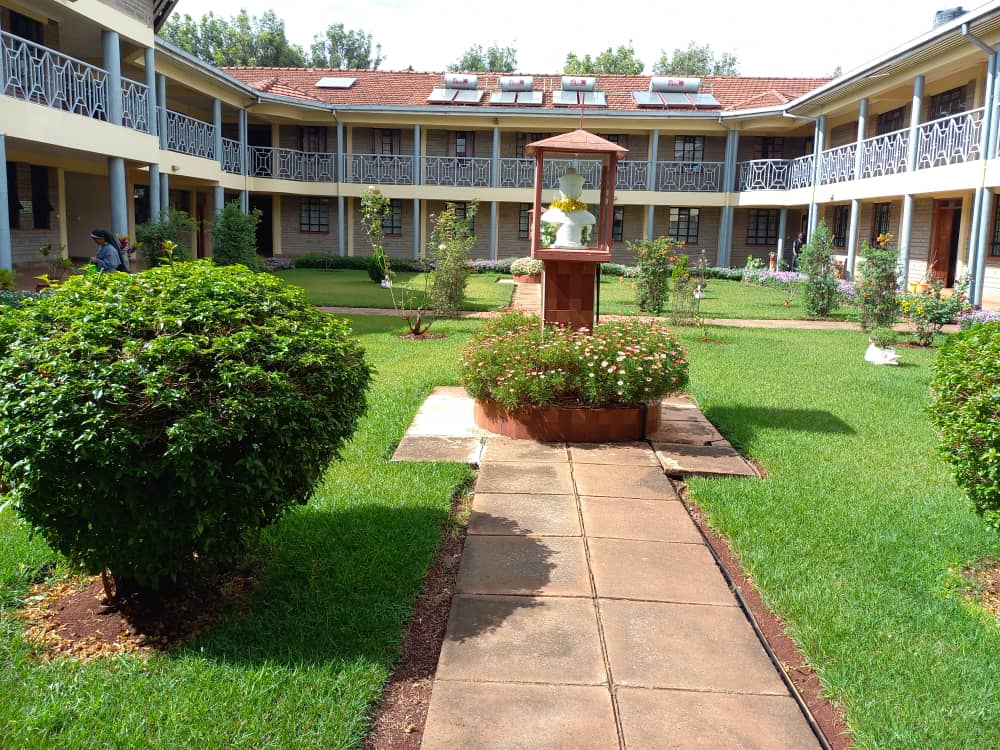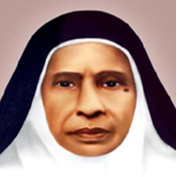
BRIEF HISTORY OF OUR CONGREGATION


Founder: Venerable Bishop Thomas Kurialacherry
Co-Foundress: Servant of God Mother Chantal
The vision of our Founder about our congregation was to form the community of virgins who would be adorers of the Blessed Sacrament like the Seraphs who stand in attendance before the Lord of Host, incessantly singing hymns and praises to His glory.(Is 6:3) Independent units of the Congregation under the Bishops concerned were unified under one Superior general on 15th Sep.1963. His Holiness Pope Paul VI raised it to the Pontifical Status on 11th Feb.1968.
The Congregation of the Sisters of the Adoration of the Blessed Sacrament (SABS) has its origin from the deep personal Eucharistic experience of Venerable Mar Thomas Kurialacherry,(1873-1925) an ardent devotee of the Holy Eucharist. The inner call received by him was that the Holy Eucharist in the Blessed Sacrament must be known, loved and adored by all, always and everywhere. He pursued this inspiration with courage, stability and absolute trust and founded the Adoration congregation on 8th December, 1908 at Champakulam in Kerala, India with the co-operation of Mother Mary Chantal the first member and Co-foundress of the Congregation. The humble beginning of the Congregation was in cattle shed in Edathua, Kerala, India.
THE EXISTANCE OF SABS
The Holy Eucharist celebrated, adored and lived everyday is the source and summit of the existence of the SABS. The holy hour before the Blessed Sacrament is the most precious time in the everyday life of the SABS. Besides the Congregation have about 110 Perpetual Adoration centers all over the world in order to draw people to the Living water of Eternal life.
SABS Presence in East Africa
- We teach in the Preprimary, Primary, Secondary and Higher Secondary Schools and Universities.
- We take care of the sick through Dispensaries, Health centers and Hospitals.
- We take care of Orphan children infected with HIV/AIDS, in children’s homes and in the different slums of Nairobi on a community based project.
- We look after physically challenged children in small homes.
- We do Family Apostolate, promote women’s welfare projects and try to reunite the broken families.
- We do Pastoral work in the parishes where we are and involved in the community development programs.
- We serve in the Maxim Prison for Women in Langata . There we teach catechism and join with them for Sunday and special day’s liturgy. Once in a while the Officials of the Prison will come to our chapel and make prayer day with Eucharistic Adoration.
- Our sisters are also preaching the word of God & offering counseling service in the Retreat centre.
Thus our work is diverse and through our involvement with people, families, Institutions and groups, we promote a positive outlook on life, in the poor and needy people with whom we work. We hope and pray that our presence would make a difference in areas where we work and we become the messengers of Eucharistic love & compassionThe Adoration Congregation, which came into being in 1908 with five members, has grown like the mustard seed with 5,500 members today. The Congregation is striving forward with its vision and dreams to meet the challenges of the new century, searching for new pastures to extend our services where we have not yet reached and thus fulfill the missionary mandate of the Congregation that ‘‘the Holy Eucharist in the Blessed Sacrament must be known, loved and adored by all, always and everywhere’’. Christ the missionary par excellence sent by the “Father” said to the apostles, “As the Father has sent me, I am sending you. You shall be my witnesses to the ends of the earth” (Acts 1:8) Go therefore and make disciples of all the nations (Mt. 28: 19). This mandate of Christ has inspired and empowered us to respond to the urgent call of the church in taking up the missionary work in East Africa. We have started our missionary activities in East Africa in1994.
“You should strive to make the Eucharistic Lord known, loved and adored by all, always and everywhere” (F.C.1). This inspired the SABS to be sensitive to the needs of the church especially to the needs of the people of East Africa